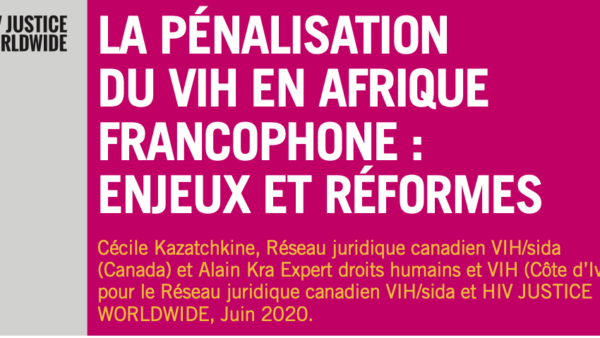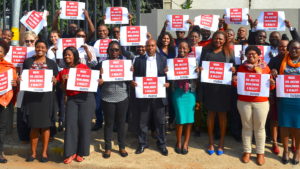Overview
Niger’s HIV-specific law, first enacted in 2007 was updated in 2015 following a concerted process, which began in 2010, and co-led by UNAIDS, civil society organisations, and CISL (Coordination intersectorielle de lutte contre le Sida) with the support of the Parliamentary Network on AIDS, TB and Malaria.
This law provides for softer criminal provisions around HIV transmission; recognises condom use and disclosure as defences; and removes criminal liablity for mother- to-child transmission, whether through birth or breast-feeding. The law also removed the obligation to disclose prior to sex.
Under the 2015 law, individuals living with HIV who “wilfully” expose a partner HIV still face 5 to 10 years in jail and a fine of up to 500 000 FCFA (Approx 844 USD). The law also provides for enhanced sentencing in cases of rape by a person aware of their HIV-positive status.
However, the law remains deeply problematic as demonstrated by a prosecution that took place in 2016. Here, a man who tested HIV-positive after his wife was diagnosed during antenatal testing, reported her to the police. Although she was not aware of her HIV status until her pregnancy, and the direction of transmission was not proven, she was sentenced to 5 years in jail and a fine of 250 000 francs under section 32.
This decision underlines the precarious situation of women who are often the first in a couple to find out about their status as well as how the “wilful” characteristic of the exposure/transmission charge is based on presumptions and not on evidence-based facts. (The court transcript of this judgement is available on request: Jugement correctionnel No 174 du 07/07/2016 du Tribunal de Grande instance de Maradi).
We are aware of other cases under the previous law, but the exact number is unknown.
A coalition of international agencies and local organisations are currently working together towards repealing the 2015 law.
Laws
Act No. 2015-30 of 26 May 2015 on HIV prevention, care and control
Article 32: Any person who knowingly exposes another person to the risk of HIV infection shall be punished by imprisonment from five (05) years to less than ten (10) years and a fine of fifty thousand (50,000) to five hundred thousand (500,000) FCFA.
No one can be held criminally responsible when HIV transmission or exposure to the risk of infection results from:
– An act that does not involve a significant risk of HIV infection and the possibility of transmission of HIV from a mother to her child before or during the child’s birth or through breastfeeding;”
– A person living with HIV who has engaged in safer sex practices, such as using condoms or sharing their HIV status with their sexual partner before performing an act involving a significant risk of transmission.
Article 33: Any person who, through negligence, carelessness, carelessness, clumsiness, inattention or failure to observe medical safety measures, transmits HIV to another person shall be punished by imprisonment from three (03) months to three (03) years and a fine from twenty thousand (20,000) to two hundred thousand (200,000) CFAF.
Article 34: The fact that a person living with HIV commits an act of rape knowing his or her HIV status constitutes an aggravating circumstance of rape and is punishable by a term of imprisonment of fifteen (15) to thirty (30) years.
Criminal Code
Article 230-1 Act No. 2003-25 of 13 June 2003 amending Act No. 61-27 of 15 July 1961 establishing a criminal code
“The act of knowingly exposing another person to the risk of acquired immunodeficiency syndrome (AIDS) disease is punishable by five to less than ten years’ imprisonment and a fine of 50,000 to 500,000 francs.
The penalties provided for in the previous paragraph shall be increased to a maximum where the perpetrator belongs to the medical or paramedical profession.
Further resources
Décret de 2017 portant modalités d’application de la loi No 2015 du 26 mai 2015, relative à la prévention, la prise en charge et le contrôle de l’Immunodéficience Humaine (VIH).
Loi relative à la prévention, la prise en charge et le contrôle du virus de l’immunodéficience humaine (VIH) au Niger.
Acknowledgements
Memorandum to policy-makers, legal professionals and media use analysing the current HIV criminalisation law in Niger and recommending the repeal of the provisions of Nigerian law relating to HIV disclosure, exposure and transmission and urging caution and careful evaluation of the latest scientific data when criminal prosecution is contemplated.
HIV Justice Network's Positive Destinations
Visit the Niger page on Positive Destinations for information on regulations that restrict entry, stay, and residency based on HIV-positive status, as well as access to HIV treatment for non-nationals.



